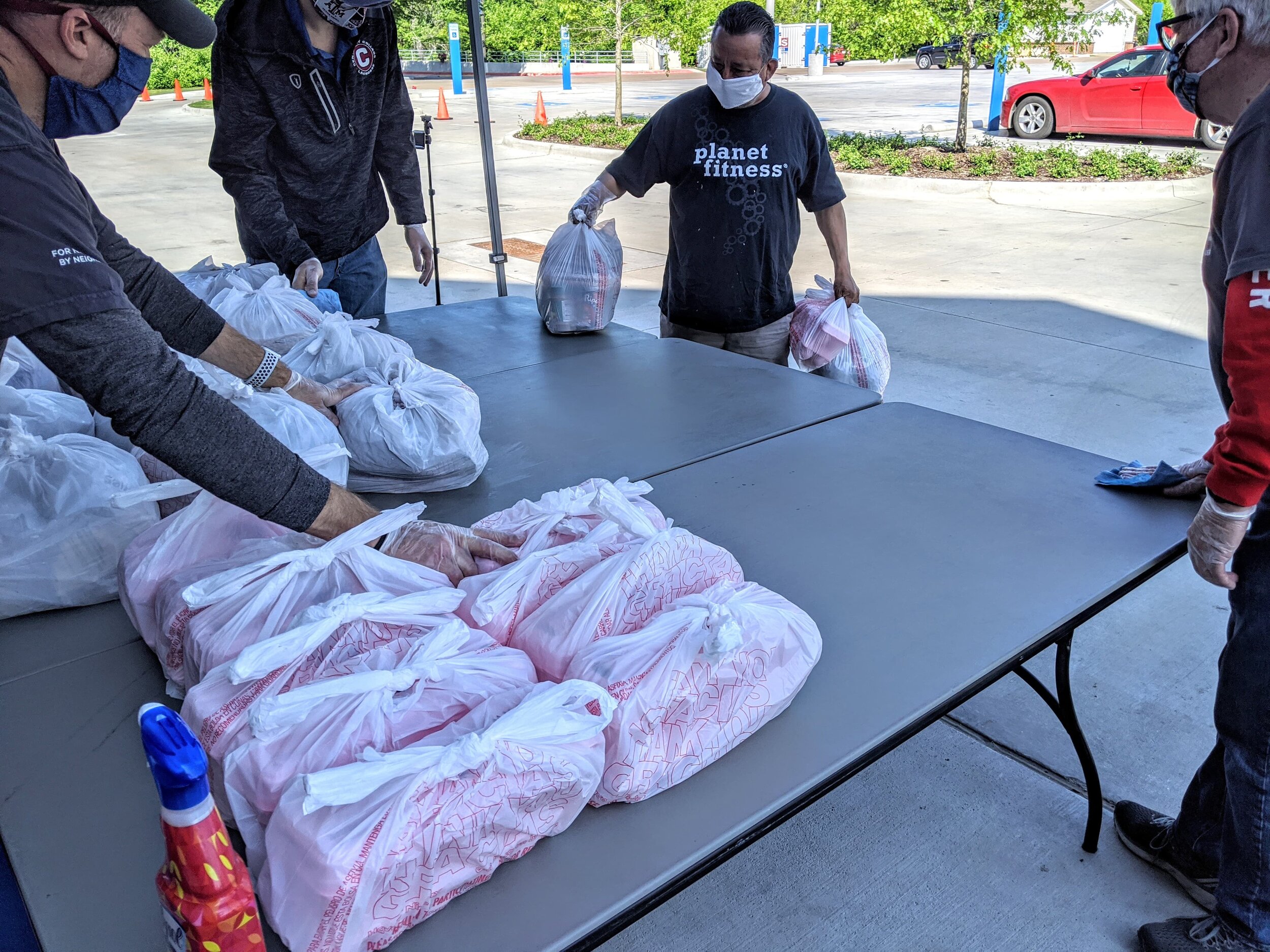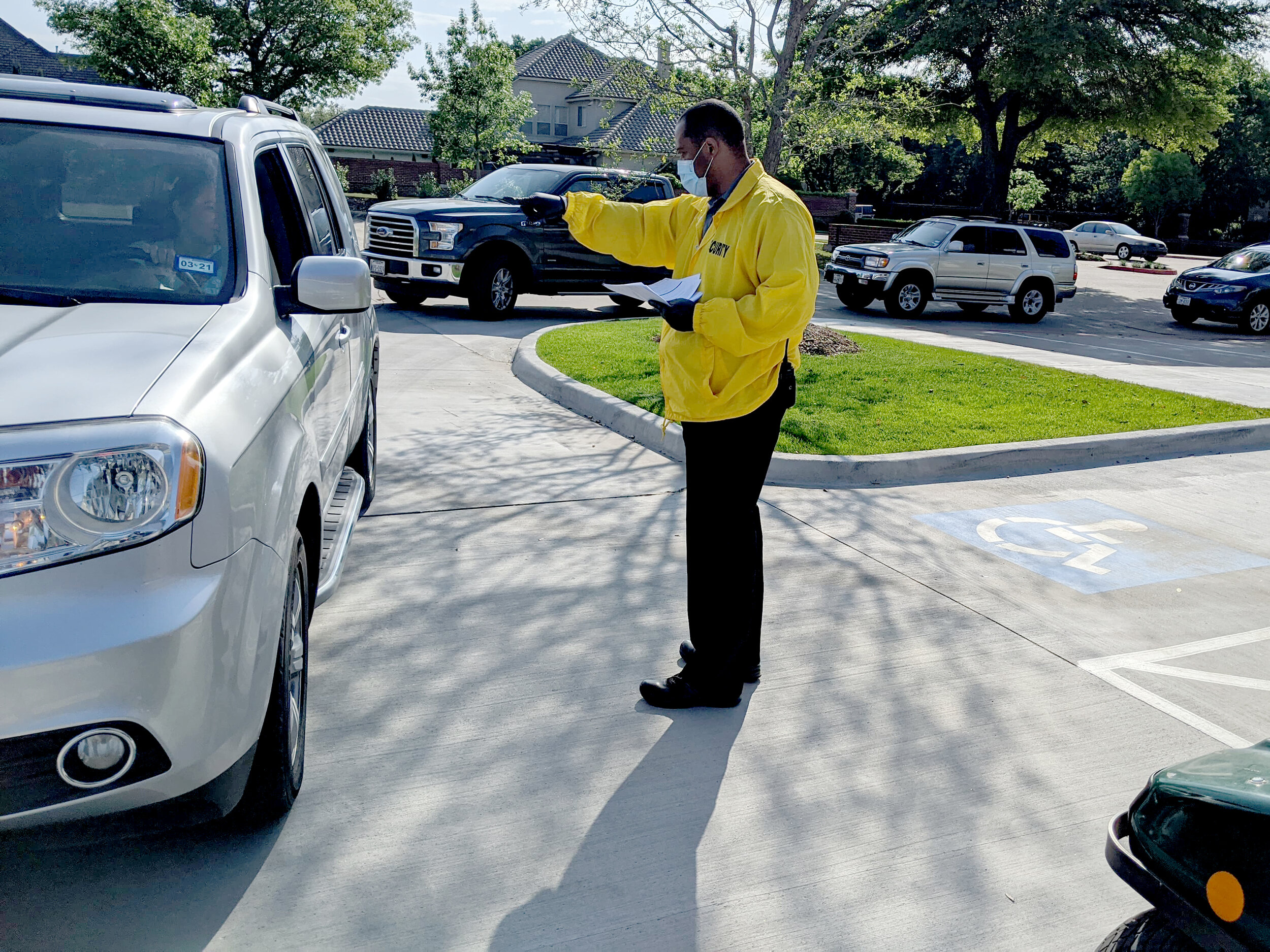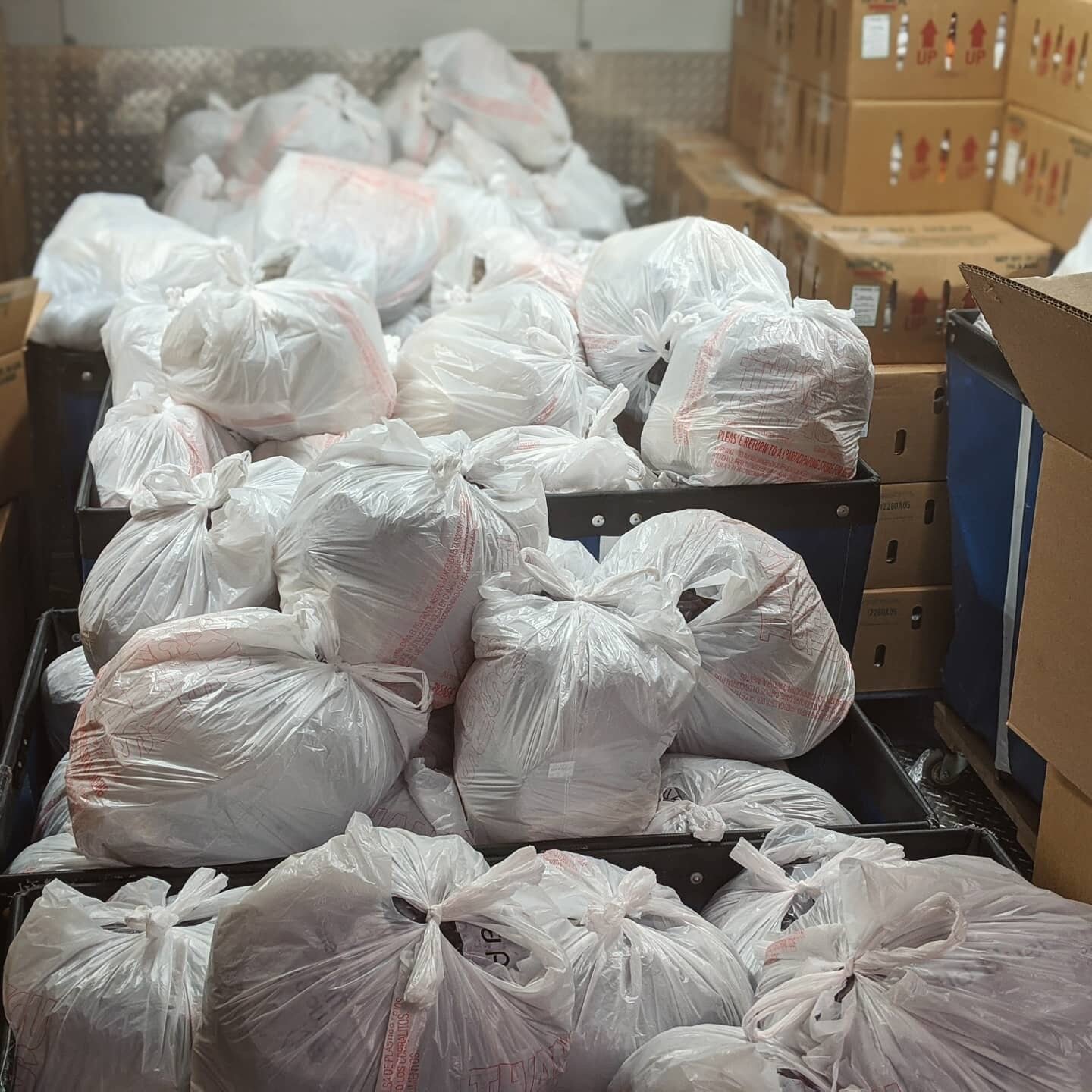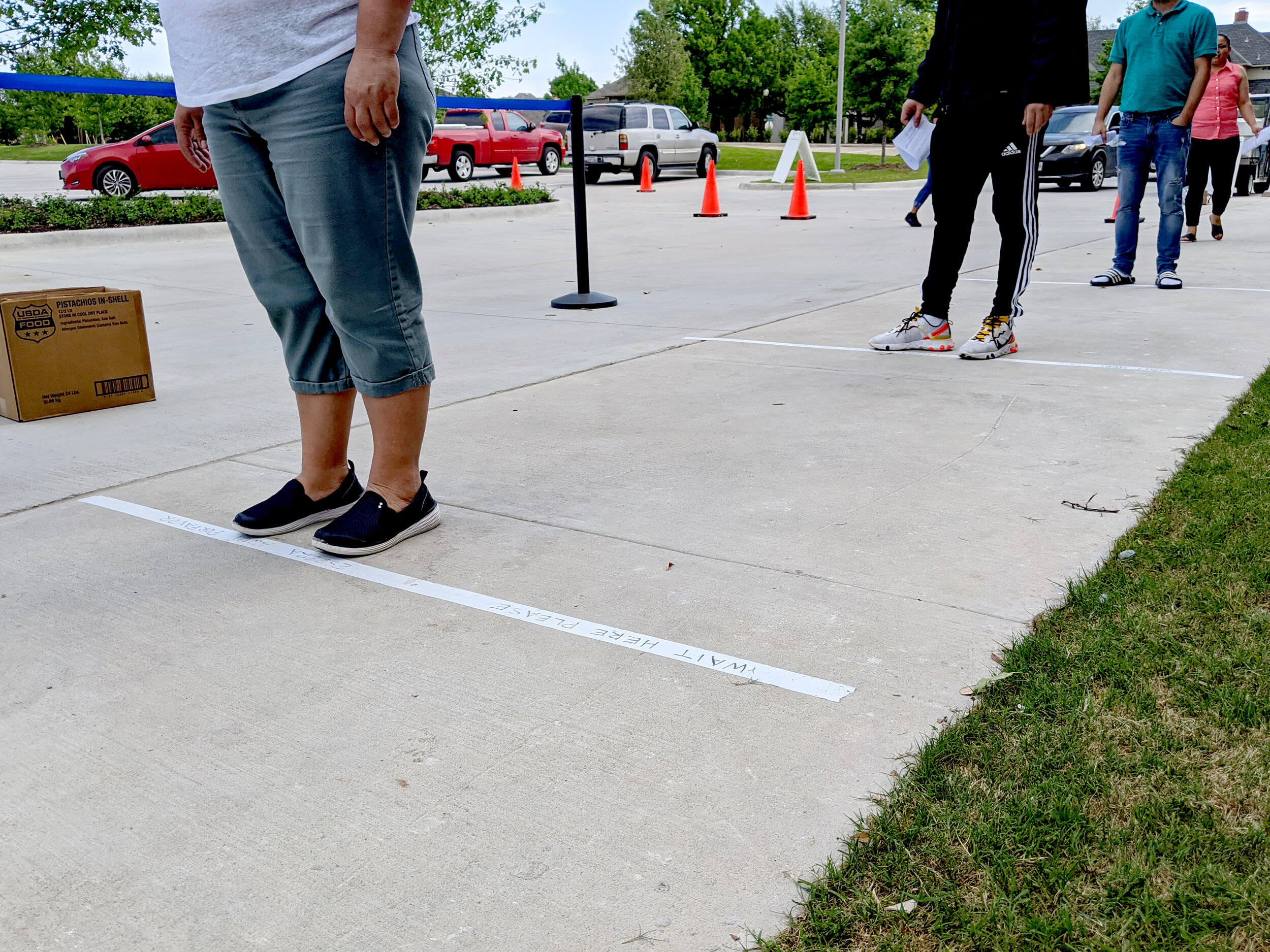Interview by Jan Osborn. Photos courtesy of The Storehouse of Collin County.
Candace Winslow understands the importance of giving back to your community. Over the past 15 years, Candace has volunteered and served on the Board of Directors in several nonprofit organizations, including Girl Scouts of North Texas, Family Compass, Dallas Christian Women’s Job Corps and Community Partners of Dallas. In 2018, Candace was named the executive director of The Storehouse of Collin County.
The Storehouse offers three main programs: Seven Loaves Food Pantry which provides grocery and hygiene items; Joseph’s Coat which provides new and gently used clothing and Project Hope which provides mentorship, training, education, and hope to women who are in the negative cycles of poverty and dependence.
We recently visited with Candace about transitioning from the corporate sector to full-time work in the nonprofit world.

Can you share about where you grew up and how giving back was a part of your family dynamic?
I am the rare Houstonian that prefers Dallas to her hometown! I credit experiences at my high school, Kinkaid, which planted the seeds of the importance of giving back. Specifically, I was part of a group called KOCI – Kinkaid’s Organization for Community Involvement – as a high schooler. Through various experiences in this group in which we were charged to make a difference in our local community, I learned firsthand the importance of seeing the world as bigger than just myself and my concerns. Early on I recognized that I have a responsibility to care for those around me, and that by doing so, I often gain so much more than I give.
How long have you been Executive Director at The Storehouse, and what did you do in your previous career?
I began serving as executive director in the summer of 2018. My first experience with The Storehouse was as a volunteer with my son, Grant, through Young Men’s Service League. I am so grateful to have had this volunteer experience prior to being called to the role of executive director. Serving in the pantry allowed me to not only see the inside operations of this great agency but the incredible work of the volunteers. From my very first volunteer shift, I appreciated how I was empowered to own the work assigned to me and to make a difference in the lives of those served.
Prior to coming to The Storehouse, I worked in the corporate sector. After many years, I began to recognize that I wanted to work tirelessly in organizations that would leave an impact long after my time here on earth. Although I have volunteered all my life, serving in a nonprofit vocationally allows me to apply my business experience in a mission-minded environment.
Would you share the story of how Seven Loaves Food Pantry started and how it has grown?
Founded in 2009 as a 501(c)3 by St. Andrew United Methodist Church as a mission to feed the hungry, The Storehouse has grown into a $4 million nonprofit organization providing short-term assistance and long-term transformation to residents of Collin County in need. In addition to Seven Loaves Food Pantry – one of the largest distributors of food for the North Texas Food Bank in Collin County – The Storehouse includes Joseph’s Coat clothing closet, providing an average of 4,000 garments each month, and Project Hope, a mentoring and support program for women trying to break the cycle of poverty.
What is your mission and who are the people you serve at The Storehouse?
Our mission is to feed, clothe and care for neighbors in one community. The Storehouse serves neighbors from all Collin County zip codes as well as few from Denton County and Far North Dallas. Families come once a month for food and once every two months for clothes. Project Hope assistance is provided as needed and by appointment only.
Many do not realize there are families in need throughout Collin County. Can you share a little about that need and how many you served in 2019?
Prior to COVID-19, 1 in 6 households (16.1%) faced food insecurity, and 1 in 5 children (21.6%) were affected by hunger, illustrating that the needs were already great within the Collin County—one of the most affluent counties in Texas. In 2019, The Storehouse provided 1.8 million pounds of food (equivalent to 1,535,231 meals, feeding 36,803 individuals of which 12,466 are children and 3,664 are seniors); 52,960 articles of clothing; 1,352 hours of mental support; and it also prevented homelessness for 17 cases with short-term housing assistance.
How has COVID-19 changed the way you serve the community?
Beginning March 13, when the shelter-in-place was instituted, our focus turned to meeting one specific critical need during this health and economic crisis: food. We changed our distribution model, moving it outside and initially serving in a drive-thru method. We have since revised it to a walk-up operation utilizing CDC guidelines. Prior to COVID-19, our operation model was very much relationship-focused. Our pantry had a personal shopping aisle, and our neighbors visited with a hospitality team and a mental health professional staff member. This process enables us to build a relationship with them and be a “conduit of care,” offering referrals or additional support as needed.
>
“With over 130,000 people in Collin County in need of basic necessities, the need in our own local community is significant.”
Another big change during this time is that we asked all 200+ of our volunteers to stay home in order to keep them safe. Our small team of less than 10 staff works around the clock to pack bags for distribution on Thursdays and Saturdays. I am so proud of them for their tireless work, ensuring that those coming to our doors can feed their families.
Since COVID-19, are you seeing more people in need of your services? How do you think this will impact your services in the future?
Yes! What food banks and food pantries are experiencing now on a national level is unprecedented. During natural disasters and other emergencies, there is the option of relying on other areas for support, but during COVID-19, there is hunger everywhere, and people are hungry every day.
At The Storehouse, the number of households we serve has more than doubled. Since the shelter-in-place was instituted, service numbers at The Storehouse’s Seven Loaves Food Pantry have climbed steadily each week: 309 families in the first week, 348 in the second, 555 in the third, 564 in the fourth, and 658 in the fifth. Pre-COVID-19, we averaged 250 families per week. On average, 42 percent of the neighbors we have been serving are new to the pantry. With the closing of businesses, increasing unemployment, and children at home full-time, many of our Collin County neighbors are finding themselves at the doors of our food pantry for the first time.
We anticipate that even after the veil of Covid-19 is lifted, The Storehouse has reached a new normal of service that will continue for an undetermined time as families struggle to get back on their feet. While many will be able to go back to places of employment, there will be many who will not be so lucky. Savings will be depleted, families will face debt, and we will see an increase in needs beyond food in our Project Hope Program, which supports women in crisis. This “echo crisis” will be evident among many nonprofits serving on the frontlines.
Is there a story that has impacted you during your time working with neighbors in need?
One story that immediately comes to mind is from a conversation I had with a man who expressed how difficult it was for him to be at the pantry and asking for help. When I shared, “We are just helping you today, and you will help someone else tomorrow,” I saw his spirits lift and his whole demeanor change. Together we aim to create a community where neighbors can thrive and support each other.
What is the best way for people to help during this time?
Monetary donations are the most helpful. As a partner agency and one of the largest distributors of food for the North Texas Food Bank (NTFB), The Storehouse can stretch a donor’s dollar to purchase a larger quantity of food. Through its partnership with NTFB, The Storehouse has access to food items, many of which have been provided by the U.S. Department of Agriculture (USDA). While The Storehouse does not pay for the food, it pays a small transportation fee to cover handling charges. For example, through NTFB, a $200 donation to The Storehouse could provide 1,224, 16-ounce jars of USDA generic brand peanut butter, equating to approximately 16 cents per jar, compared to a cost of approximately $1.94 for a brand name peanut butter of that size in an area grocery store. Monetary gifts also allow for the purchase of more healthy items such as fresh produce and proteins along with exactly what is needed to provide a family with balanced meals.
Currently, The Storehouse is relying more heavily on NTFB since our other regular sources (individual food drives/donations and grocery store pickups) are not possible due to our building’s closure and limited resources.
How can people donate?
One way is to participate in North Texas Giving Tuesday Now, through May 5 at midnight. The Storehouse has created a fundraising theme, “As One Curve Flattens, Another Rises,” to emphasize that while social distancing helps flatten the curve of COVID-19’s spread, another curve is rising that is demanding a response from the community. Visit www.northtexasgivingday.org/thestorehousecc. Remember that no gift is too small – just one dollar will provide three meals to a hungry North Texan.
Visit thestorehousecc.org to learn more about us and for additional ways to give.
If this story has inspired you to support the North Texas nonprofit community, visit our Support Nonprofits During COVID-19 page to learn how you can get involved!



